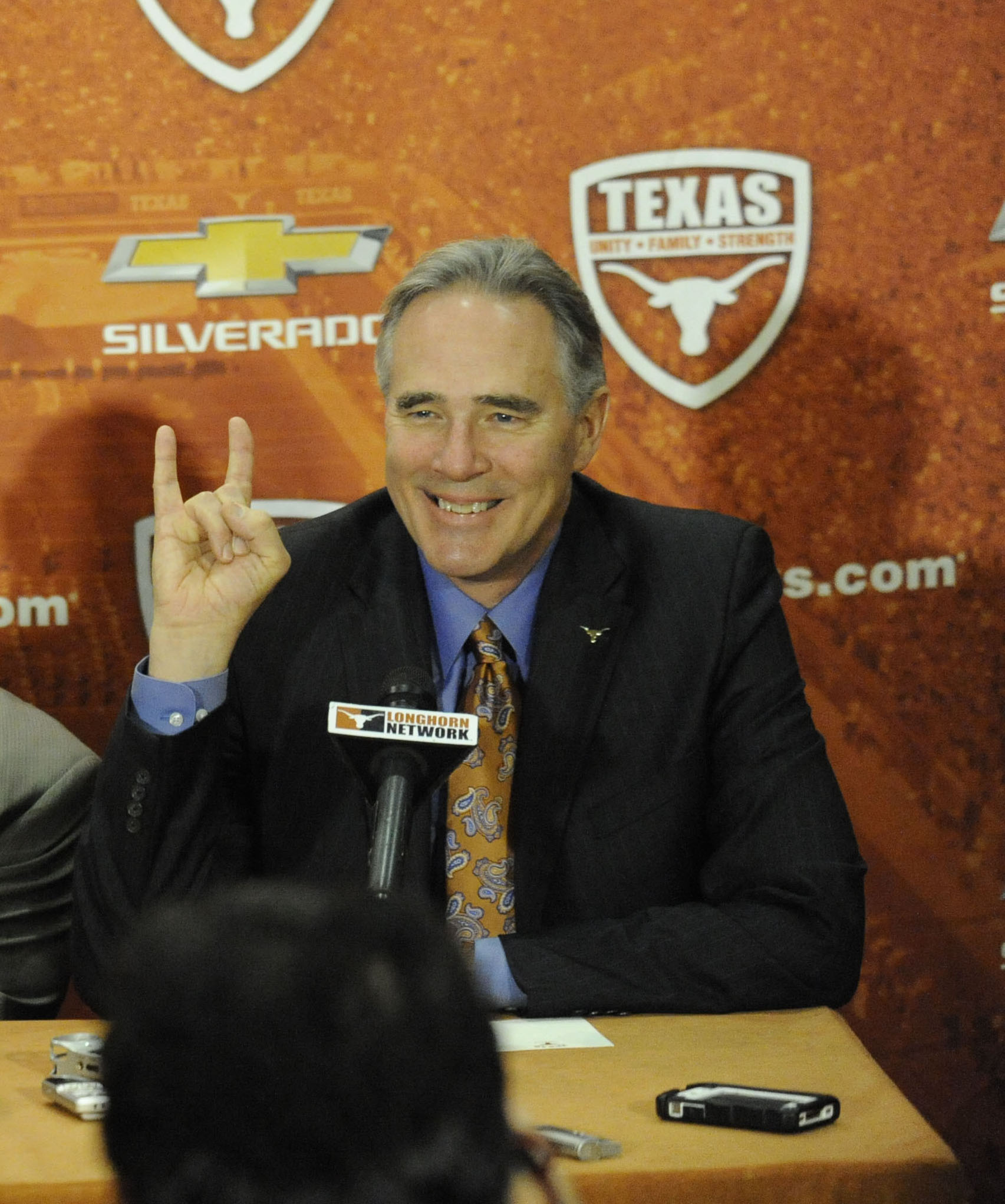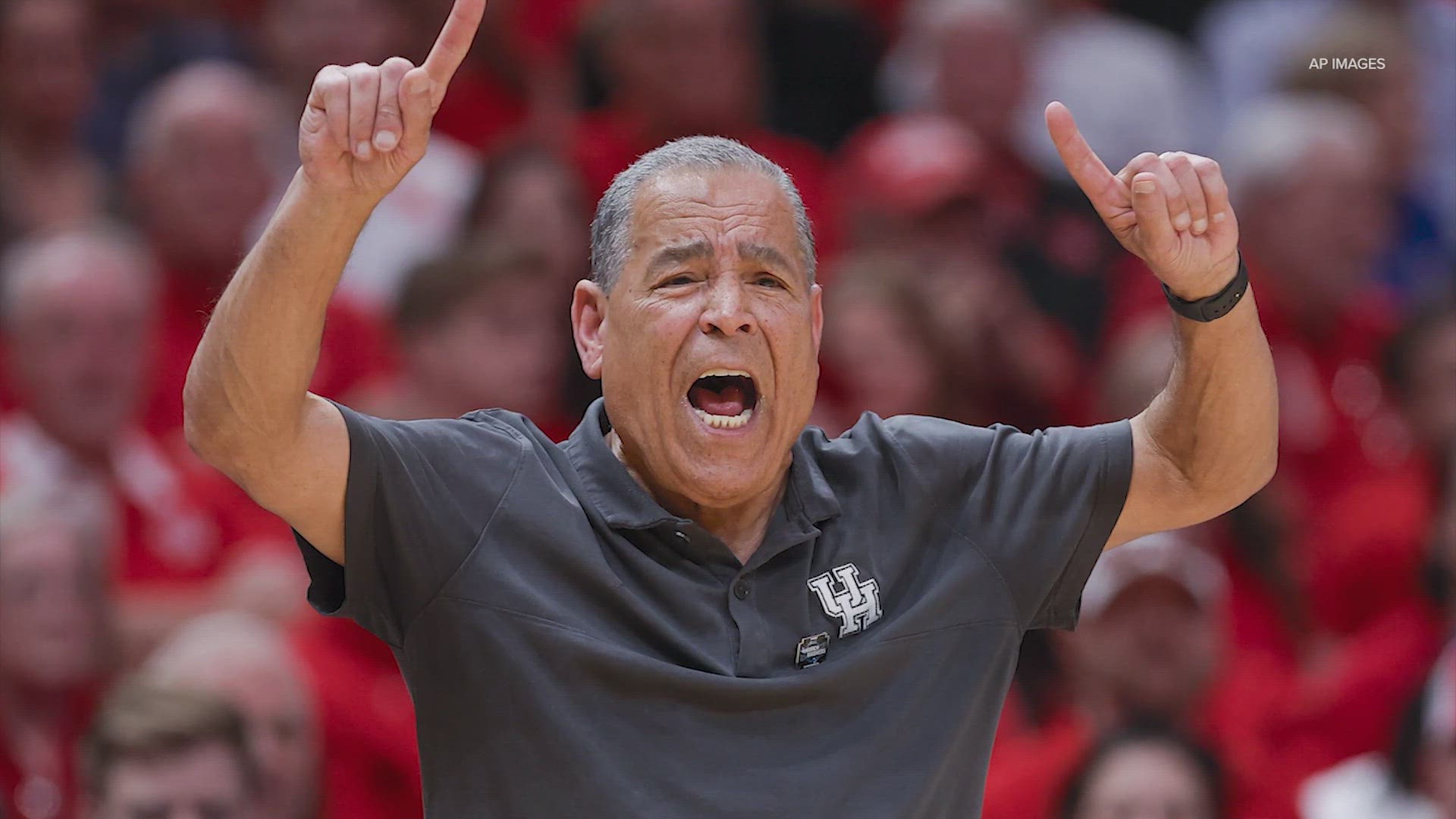AUSTIN, Texas – Anyone who has access to Google might have seen this day coming at the University of Texas. From the beginning, back in November 2013 when Steve Patterson was a surprise hire to replace the retiring DeLoss Dodds as Texas' athletic director, there were indications of what might lie ahead, that despite being a Texas alumnus, he might be a spectacularly bad fit for Texas.
Or maybe for anywhere.
If you doubt it, look it up. Go back just a little farther than his time at Arizona State, to Patterson's tenure running the NBA's Portland Trail Blazers. But 22 months after returning to Austin, Patterson is gone after alienating just about everyone associated with Texas, and the school hopes that the damage can be fixed before it becomes devastation. As a Texas insider, speaking on the condition of anonymity because of the sensitivity of matter, lamented to USA TODAY Sports about Patterson's tenure:
"It takes years to build something like this, and not very long to torch it all."
There were many reasons for the abrupt departure. But only one example is necessary to explain the magnitude of the problem.
Houston billionaire Joe Jamail declined this season to renew his luxury suite at Darrell K. Royal-Texas Memorial Stadium at Joe Jamail Field. You see a potential issue?
Last summer, when news broke that new Texas president Gregory L. Fenves had told Patterson to change his management style, it was an indication that simmering trouble had escalated to boil. By the end, along with big boosters and average fans, who were angered by his decisions to increase ticket prices for football and men's basketball, Patterson had apparently lost the support of Texas' coaches — including football coach Charlie Strong, whom he had hired.
Patterson's reorganization and belt-tightening ruffled feathers and caused morale to plummet within the athletic department. To be fair, a change of direction — fat-cutting and even a house-cleaning — would have happened on the watch of any new athletic director.
In 2013-14, the most recent year for which figures are available, Texas had $161 million in operating revenue and $154.1 million in operating expenses. However, the athletics department reported transferring an additional $9.7 million to the university, so its total expenses of $163.8 million actually exceeded its revenue.
The department had been run one way for more than 30 years under Dodds; it was probably past time for significant change. Patterson's track record shows he's able to do that.
But his style — arrogant, imperious, impersonal, fill in your preferred negative adjective — wasn't conducive to maintaining morale within the department. Instead, it cratered.
One telling note came in July, not long after Patterson had abruptly fired longtime Texas media relations director John Bianco. Strong was not consulted about Bianco's dismissal, and he wasn't happy.
"(Bianco) was a total professional. He did a great job. I really miss him, because he was my guy," Strong told the San Antonio Express-News, adding: "We meshed. Think about it, we were always together."
Many of Patterson's decisions and much of his strategy might have been necessary. But the internal cost-cutting came off too much, too often like penny-pinching, or nickel-and-diming despite the huge budget. Likewise, he seemed unaware or uncaring about external perceptions of the department and his decisions.
Increasing ticket prices is never a popular move, but coming after a 6-7 football season it was especially tough for fans to swallow. Attendance at the home opener last Saturday was announced at 86,458, which observers said seemed a stretch; the stadium capacity is 100,119. That might have been more a referendum on a blowout loss the week before to Notre Dame, or because the opponent was Rice. But a plane flew over Darrell K. Royal-Memorial Stadium with a banner: "Patterson Must Go."
Three days later, he was gone. And the overall lesson is pretty simple, and something your mom could have taught: Be nice. Act friendly. Treat people right.
If college sports is big business, it can't be run strictly that way, like a professional franchise. It has to have a friendly face. It needs to feel at least a little like a mom-and-pop operation, even as it swims in millions of dollars, even as hard decisions have to be made.
Today's athletic directors are essentially corporate CEOs. They must know how to build and maintain revenue streams. But even at a place like Texas, with a budget that annually ranks at or near the top of college athletic departments, the business model remains a hybrid.
Lasting success is dependent on fans who buy tickets and donors who write larger checks, who need glad-handing and a friendly face — and in the case of some of the wealthiest donors, need to be consulted on larger issues. Some of that can be handled by underlings. But a personal touch from the athletic director is important. According to reports, there wasn't much of that, and those Patterson did personally touch came away cold.
Patterson should receive credit for hiring Strong and men's basketball coach Shaka Smart, which look like strong and smart hires (sorry) despite the current football struggles. But it's telling that there's been less heat so far on Strong, even after that terrible loss at Notre Dame to open the season, than there was on Patterson. Back to that banner: "Patterson Must Go."
Where does Texas go from here? The tendency would be to look for Patterson's polar opposite, which might be a little much.
Mack Brown's name immediately popped up after news broke of Patterson's exit, and the Longhorns' former football coach would probably quickly repair the damage, soothing the anger and unrest among the various stakeholders. There's probably never been a coach in the modern era who was better than Brown at making everyone from the average fan to well-heeled boosters to even the media feel appreciated.
But it might be uncomfortable to have Brown, who was dumped a couple of weeks after Patterson's arrival, overseeing Strong's efforts to rebuild the football program. At least as important, Brown doesn't bring the necessary business résumé; his hiring might also require the addition of a strong No. 2 to run the department.
There are plenty of successful college athletics officials who can do both.
The obvious choice is Oliver Luck, who was a finalist when Patterson was hired — reports had a last-minute switch to Patterson — but would he be interested this time around? At the time, Luck was West Virginia's A.D. Now he's an executive vice president with the NCAA, a guy some think might one day head that organization.
There are many successful athletic directors who fit the mold: business-savvy executives with engaging personality. To name a few: Arizona's Greg Byrne, never mind that his father Bill was once the athletic director at rivals Nebraska and Texas A&M; TCU's Chris Del Conte; Kansas State's John Currie; Arkansas' Jeff Long. Start there, but there are many more.
Right now, they all share one important characteristic that is very attractive. They're not Patterson.


